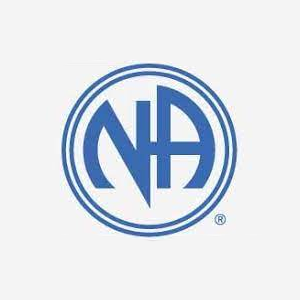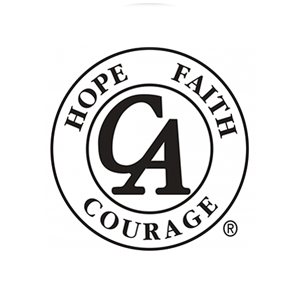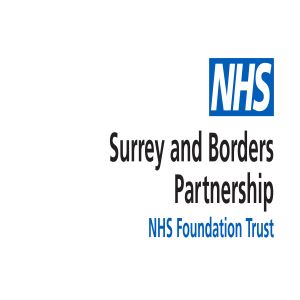Drug & Alcohol Rehab in Woking

How Does Rehab Work?
Rehab involves the support services and therapies that people with drug or alcohol addiction receive to conquer addiction and subsequent relapse. Once a medical assessment and detox are completed, individuals will receive addiction treatment in the form of therapy. Treatment is made up of therapy from a professional counsellor, the attendance of group meetings as with a 12 Step programme, and the option of inpatient or outpatient rehabilitation. residential rehab services require that clients live at the residence or centre for the period of therapy. Outpatients will attend therapy by counselling or meetings but will not stay at the facility. Consultation with a medical expert plus an individual assessment will help see whether inpatient or outpatient services are suitable for your requirements.
What Happens During Residential Rehab?
Taking the brave step towards recovery starts with rehabilitation. It is a process, and it takes time but with dedication and support relapse can be prevented. If you’re unsure about what rehab entails, we provide a breakdown of what to expect.
Rehabilitation starts with an assessment performed by an experienced medical professional. The goal is to investigate your history of substance misuse, and whether pre-existing medical conditions are present. This includes any comorbidities such as mental health disorders that require specialised treatment.
Detox is an essential part of a recovery programme. It involves the safe removal of drugs and/or alcohol from the body. When detox is done with medical intervention, withdrawal symptoms can be monitored, and its severity managed. This can significantly improve the chances of success and minimise relapse.
During rehab, patients will receive therapy. Treatment can be provided on an inpatient or outpatient basis. Therapy ranges from individual counselling including Cognitive Behavioural Therapy, skill-building and group therapy.
1. Assessment

For any individual entering rehabilitation, an assessment must be provided. It is a normal procedure meant to put your mind at ease as the specialist looks for specific behaviours, previous mental health conditions, and general health. In a residential programme, it is normal to have an admissions screening done by telephone prior to booking you into treatment. Telephone assessments allow the treatment centre to determine the relevant programme for you. It will also provide staff with information to customise support services during detoxification.
Should you or someone you love require support to overcome addiction, it starts with an individual assessment. The purpose is to determine the right therapeutic approach for the management of addictions and possible comorbidities.
2. Detox

Detox will be completed prior to therapy. It is often performed in a residential clinic where individuals can receive round-the-clock care to reduce withdrawal symptoms.
The reason medical detoxification from substances is advised is owed to the difficulties and the nature of withdrawal symptoms that may occur during this time. Without reliance on a professional service and medical attention, the risk of relapsing is increased. Individuals who receive detox and an assessment will be required to participate in a therapeutic programme that entails residential rehab or outpatient programmes.
3. Therapy

Once a medical assessment and detox are finished, individuals will enter therapy. Therapeutic intervention may consist of inpatient or outpatient services which depend on your finances and life commitments. Some of the most common therapies you can expect at a treatment facility include traditional one-on-one counselling, trauma counselling and skill-building, as well as group therapy sessions.
Step by Step Process for Residential Rehab
To understand your medical and mental health history.
Arrange a suitable date to begin your journey to recovery.
Begin the managed withdrawal process from substances including alcohol.
To understand the root cause of addiction and how to overcome it.
Aftercare is provided to help manage the risk of relapse.
To help heal the wounds that addictive behaviour has caused others.
Find your Nearest Rehab Centre near Woking
The nearest rehab centre is LifeWorks, Addiction Treatment and Eating Disorder Help in Surrey
Address: LifeWorks, Addiction Treatment and Eating Disorder Help in Surrey, The Grange, High St, Old Woking, Woking GU22 8LB
Call 0333 4444 432 to discuss your alcohol or drug rehab requirements and any other questions you may have about the process of residential rehab.
Outpatient Addiction Services in Woking
Outpatient addiction services are available for those who do not wish to commit to a residential facility or require a more affordable option for treatment. To help you with the best treatment, we provide a breakdown of outpatient services compared to residential ones.
An outpatient programme requires you to attend weekly therapy sessions. You stay at home while you visit the therapist, counsellor, or group leader to attend sessions. It allows one to continue working and attend family commitments while receiving support and intervention.
If you are interested in pursuing outpatient treatment, it is vital to find the right programme that suits your needs. Outpatient services range from paid private counselling to free charitable organisations specialising in drug and alcohol addiction.
NHS Free addiction services in Woking
The Benefits of Outpatient Services
Private Outpatient services will include individualised care plans to address the specific problems and challenges that are maintaining addictive behaviours. Outpatient support is commonly sought by individuals who have families to take care of or those who need to work full-time. Outpatient programmes are more cost-effective than inpatient addiction treatment.
The Challenges of Outpatient Services
While outpatient play an important role in accessible addiction treatment, it is also linked with a higher relapse potential. While free outpatient services do exist through the NHS or UK based charities, waiting times are to be expected and treatment tends to be more generic.

How Much Does Rehab Services Cost in Woking?
Residential drug and alcohol rehab can typically cost around £1500- £4000 a week. Private addiction treatment within a residential setting may not be financially viable for all. Fortunately, charity and government organisations deliver free or low cost services that individuals with addiction can benefit from.
The NHS and charities such as Turning Point offer free addiction treatment programmes for those having difficulties with substance and alcohol addiction. It is worth noting that Turning Point requires a self-referral. You can also find free support groups offered by Alcoholics Anonymous, Cocaine Anonymous, and Narcotics Anonymous very useful for long-term recovery from addiction.
Support Groups in Woking

Woking Living Clean Group
St Peter's Church Centre, Church Street, Old Woking, Woking, Surrey GU22 9JF

Lifeworks H&I Meeting
Lifework, The Grange, High St, Old Woking, Woking GU22 8LB UK

Woking Big Book Step & Tradition
Salvation Army, Sythwood Rd, Goldsworth Park GU21 3BE
The Pros and Cons of Seeking Treatment in Your Local Area
Pros
1. You are familiar with the area which may provide a layer of comfort/safety.
2. Loved ones can easily travel to visit or are close by.
3. You may save on the costs of travelling long distances for treatment, or free addiction services may only be offered in your hometown.
Cons
1. A local environment means access to drug dealers or other triggers. This is more of a concern if you opt for outpatient programmes.
2. Failing to consider locations outside your local area could mean a missed opportunities for more valuable and rewarding programmes.
3. Addiction treatment services that are close by do not always provide the best standard of treatment.
In the event you are unsure about a particular addiction treatment service, you can look to the CQC website for more information including a rating of that service.

